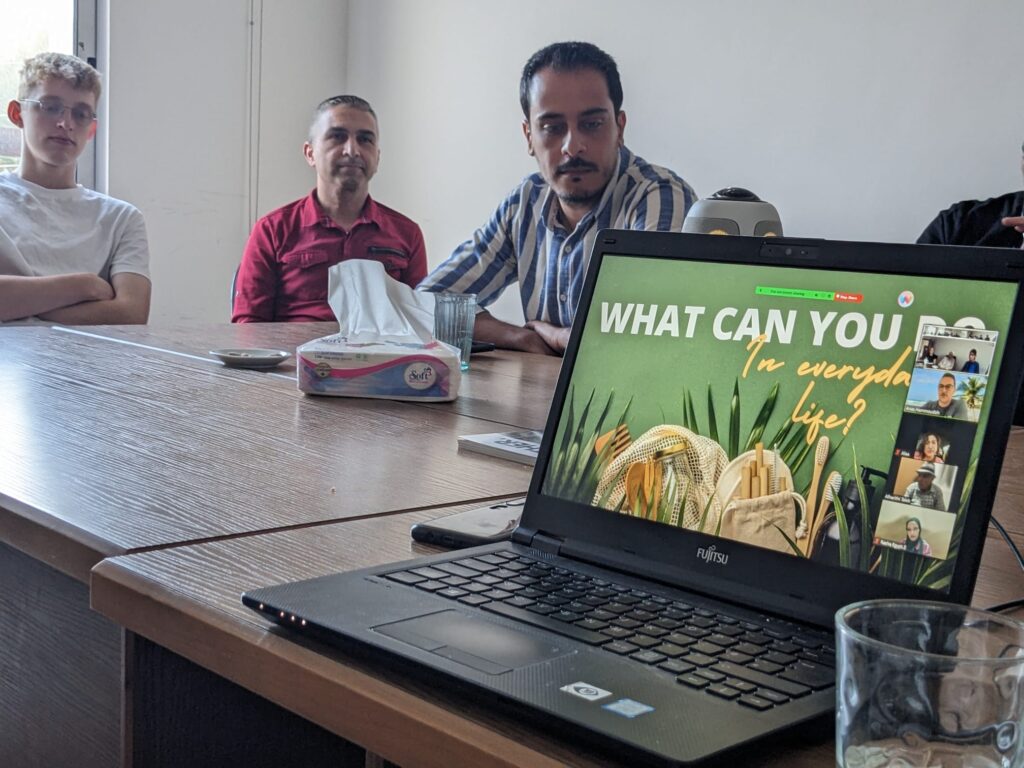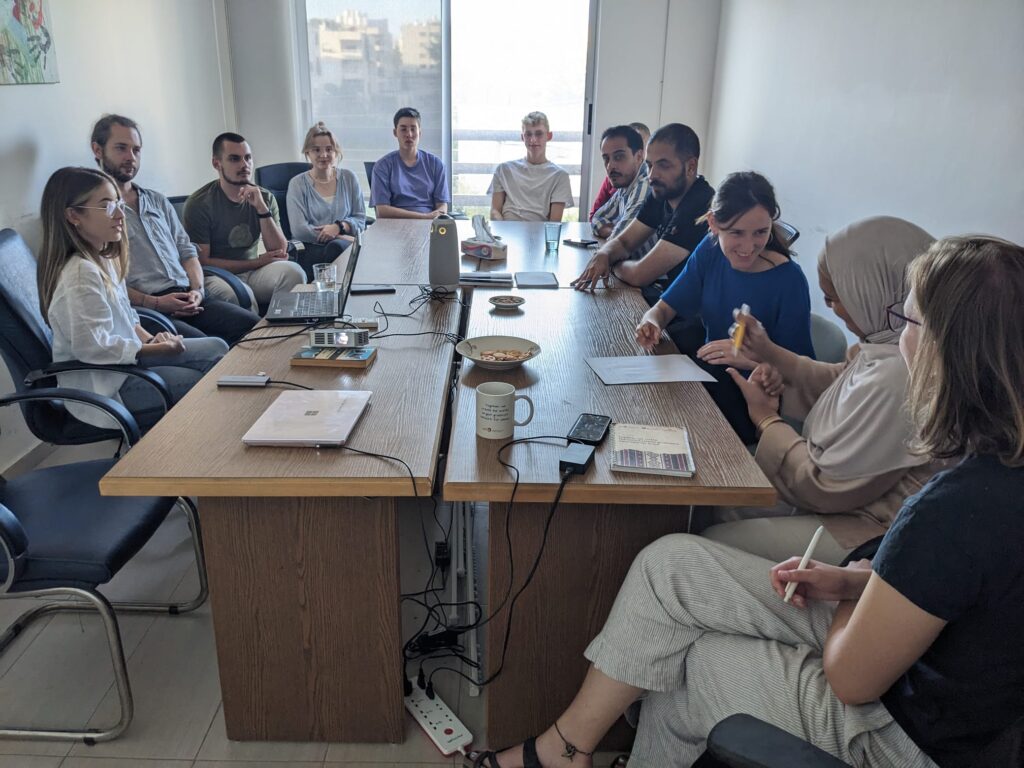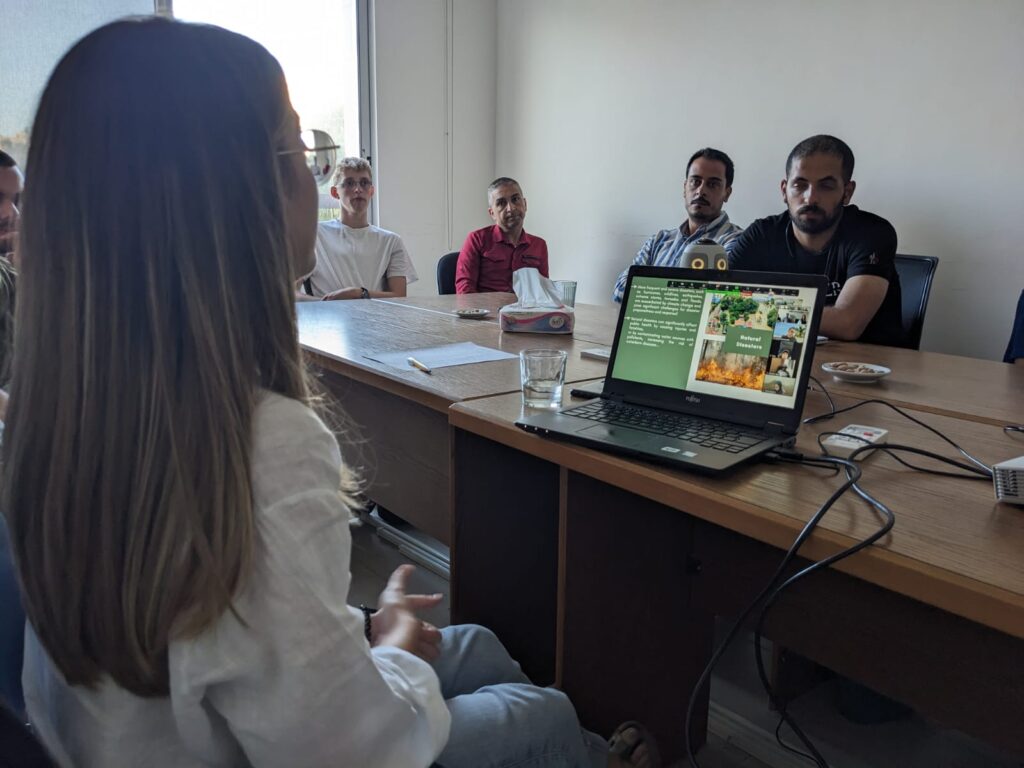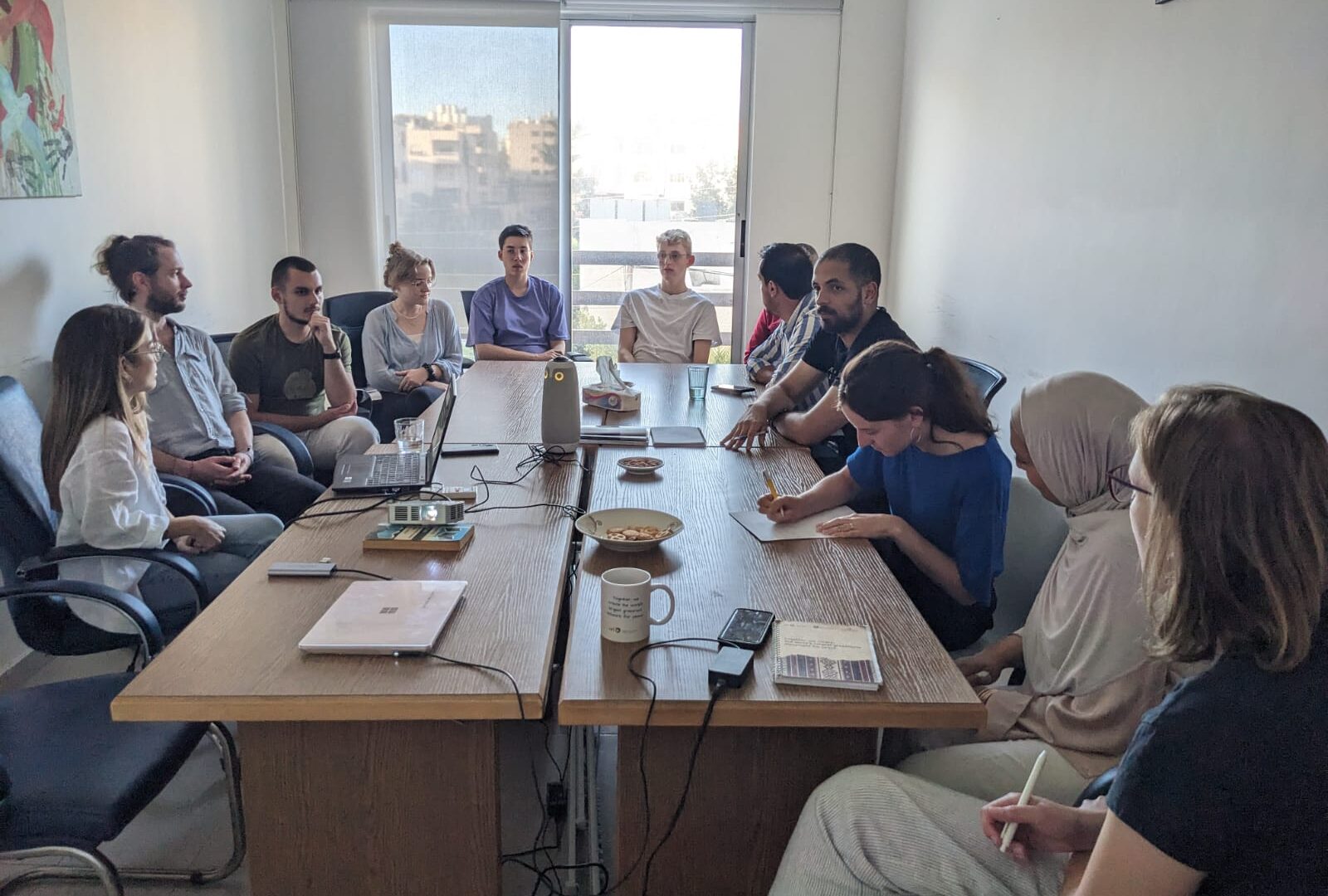In a world where our planet faces ever-mounting challenges, fostering a global dialogue on environmental protection becomes vital. Last Saturday, on the 2nd of September, a diverse group of people from our cooperation circles and volunteers met in the URI MENA office in Amman and in the digital realm, transcending geographical boundaries to engage in a thoughtful cultural café discussion.
Guiding this session was Anna-Maria, a URI MENA volunteer, and a passionate advocate for environmental protection. As a facilitator, Anna-Maria orchestrated a dynamic and inclusive conversation that brought together participants from the MENA region and even broader away, all converging on a common goal: fostering a deeper understanding of the pivotal role culture plays in our daily environmental choices. Participants in the Amman office and those joining online hailed from various corners of the globe, including Jordan, Germany, Egypt, Palestine, and even as far away as Florida, USA. This rich diversity of backgrounds and perspectives created a dynamic platform for the exchange of ideas and experiences.

As the cultural café on environmental protection commenced, Anna-Maria started with addressing the pressing global challenges that threaten our planet’s delicate balance. Pollution, waste disposal, global warming, ocean acidification, deforestation, loss of biodiversity, desertification, natural disasters, and resource depletion loomed large in the conversation, serving as a stark reminder of the urgency of the matter. The exchange of individual experiences further underscored the real-world consequences of climate change. In the sweating heatwaves of Jordan, participants spoke of a climate growing increasingly inhospitable, with summers extending beyond their accustomed limits. Meanwhile, the heavy floods that had inundated Germany left a lasting impression, juxtaposed with stories of drought-stricken regions and poor harvests.

With these challenges laid out, the conversation shifted towards actionable steps that individuals can take to protect the environment in their daily lives. From using trash cans persistently to minimize litter and waste, to the conscious choice of reducing plastic consumption, participants shared practical strategies. The importance of adopting a diet with less meat to decrease carbon footprints and contributing to the preservation of bees and other vital pollinators resonated strongly. As the discussion flowed, it became evident that each person could play a pivotal role in mitigating environmental crises.
Adding an inspiring dimension to the conversation, Anna-Maria highlighted a range of fascinating DIY eco-projects. From starting a compost bin to turn kitchen scraps into rich soil, to constructing houses for birds and insects to support local ecosystems, and even crafting homemade gifts such as candles, soap, and jam, these initiatives demonstrated how creativity and sustainability can go hand in hand. These projects not only reduce waste but also promote a deeper connection to nature and a sense of empowerment in the face of environmental challenges.

As the cultural café ended, one last crucial topic seized the spotlight: the concept of the carbon footprint. It was here that Soud served as a striking example. With attention to detail, the participants explored the carbon footprint, a measure of the environmental impact of one’s lifestyle and choices. Soud, a URI MENA volunteer, humbly shared his carbon footprint calculation, revealing a staggering result—a footprint demanding the resources equivalent to 4.2 Earths to sustain. This astonishing number resonated deeply, serving as a stark reminder of the environmental reckoning our planet faces. It was an important reminder that each individual’s actions, no matter how small they may seem, collectively contribute to our planet’s future. The cultural café had not only initiated reflective discussions but also provoked a commitment among its participants to strive for a more sustainable and harmonious coexistence with our planet.
